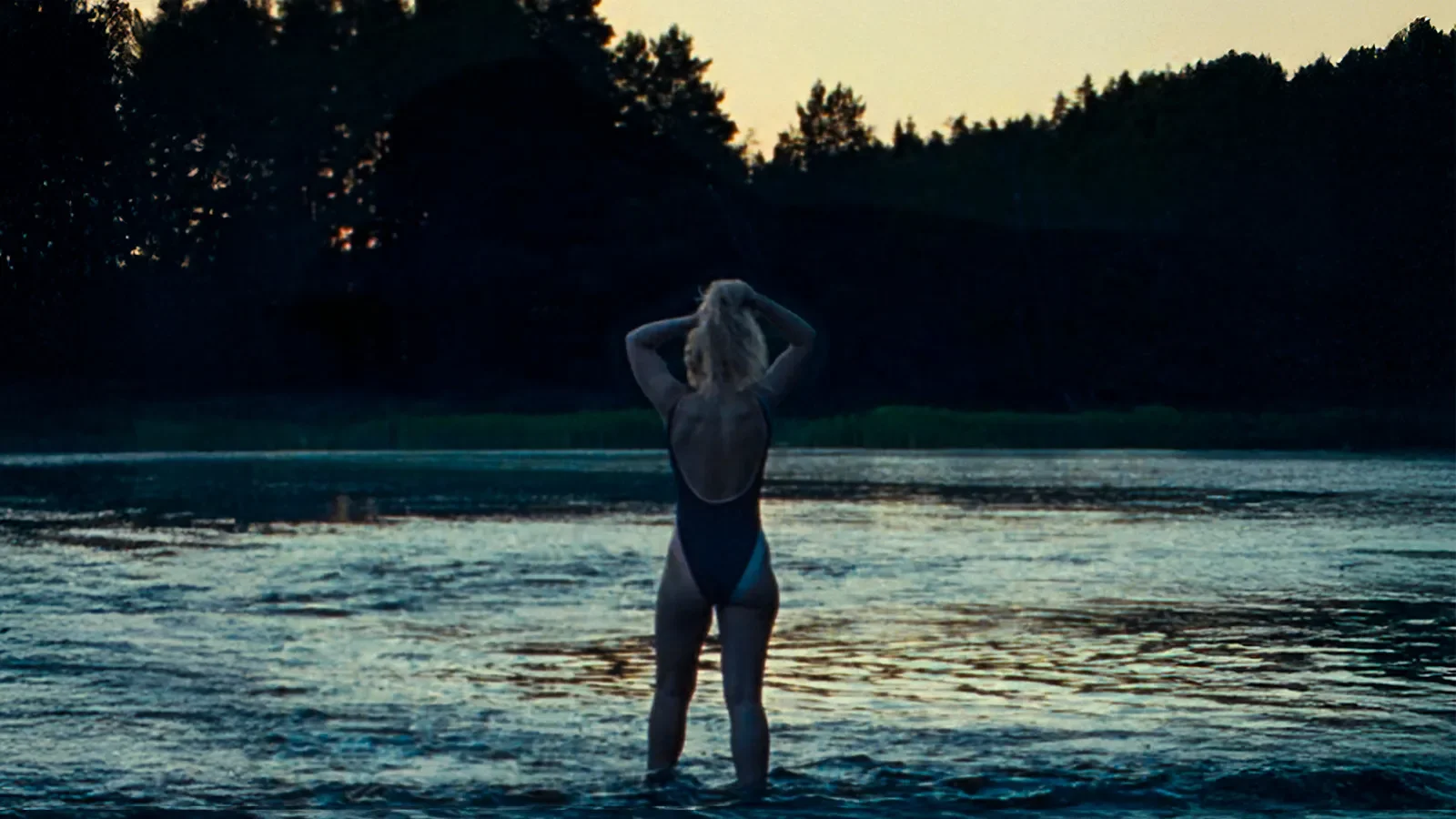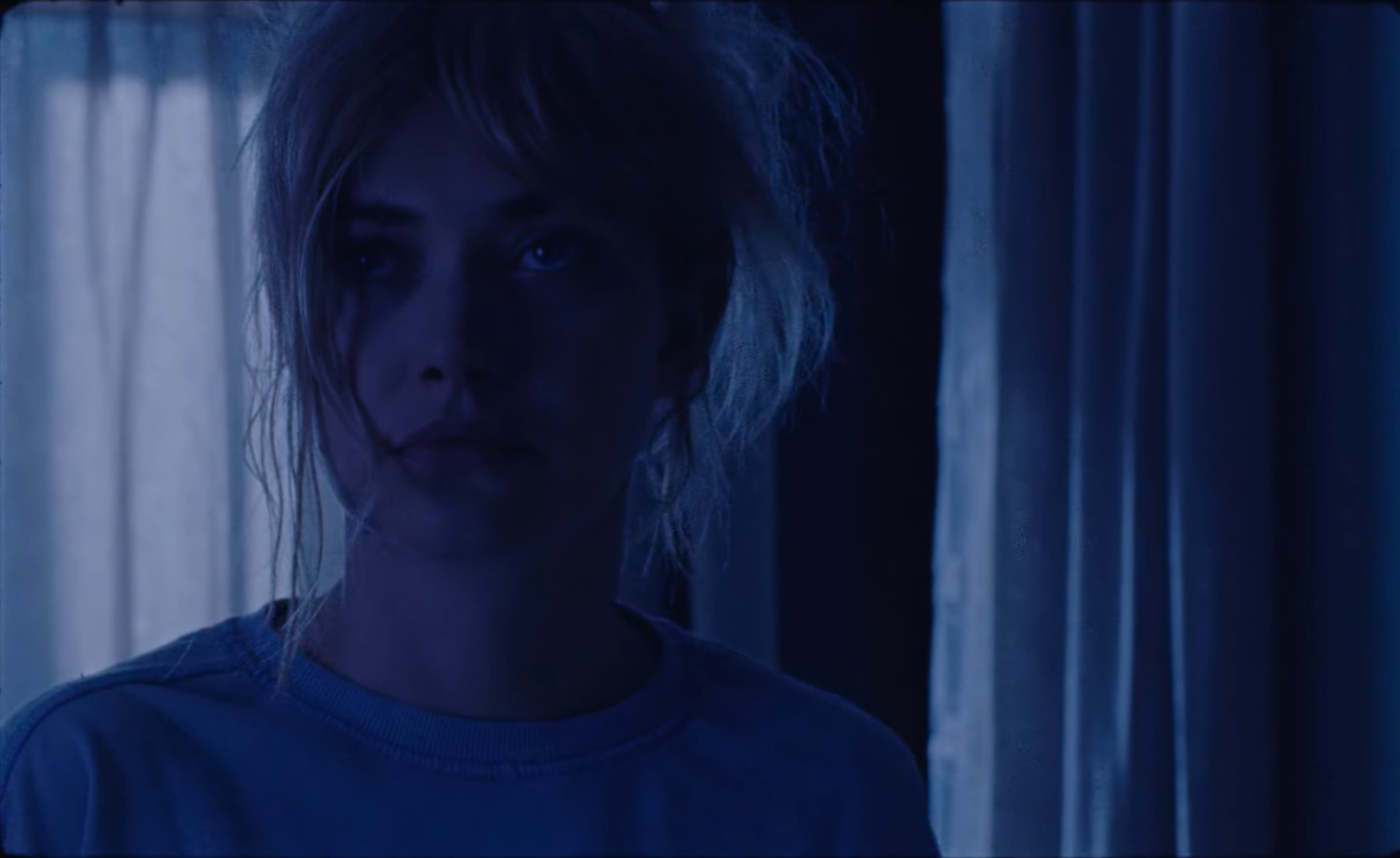The Chronology of Water — NewFest Review
Source: The Forge
There is a quote often attributed to the Greek philosopher Heraclitus that reads, “No man ever steps in the same river twice, for it is not the same river and he is not the same man.” With her directorial debut, Kristen Stewart channels that concept into cinema in more ways than one. The protagonist in The Chronology of Water, Lidia (Imogen Poots), is a swimmer who constantly finds herself submerged under water in both the literal and metaphorical sense. The water serves as both her refuge and a mirror, reflecting her memories, trauma, and continual transformation with every dive and stroke. At one moment, she observes, “I was a different person then,” a quiet acknowledgment that, like the river Heraclitus described, she is never the same woman from one moment to the next. The film itself mirrors this fluidity: every viewer will take away something different, and each viewing will reveal new currents and depths, subtle textures that may have gone unnoticed the first time, making the experience as mutable and alive as Lidia herself.
It feels as though all the women involved in the making of this film poured their hearts and souls into it. Lidia Yuknavitch wrote a memoir that is both introspective and unflinching; Kristen Stewart transforms it into a perspicacious and daring directorial debut; and Imogen Poots delivers the defining performance of her career. It feels as if each of them bled themselves dry to bring this project to life. The Chronology of Water is one of the most unapologetic portraits of womanhood I’ve ever witnessed. It is a kaleidoscopic meditation on melancholy, a poetic exploration of childhood trauma and the cycle of abuse, and a fierce tale of feminine rage. The film is heavy, harrowing, hopeful, and everything in between.
Some viewers may find the storytelling style to be too choppy or disorienting, but that is clearly by design. The film’s structure embodies the unpredictability of memory itself and mimics the ebb and flow of water. Its elliptical, montage-like editing fractures time and identity. It repeatedly loops back on traumatic moments to show how even the smallest sights and sounds, such as a piece of paper tearing or a splash in a pool, can send chills down our spines and trigger memories we would rather repress. Stewart’s decision to have Lidia narrate her thoughts in voiceover was a wise one, keeping the spirit of Yuknavitch’s writing intact. The story feels nonlinear and jumpy, much like someone dredging up old memories. The result is a film that feels like a stream-of-consciousness poem, beautifully capturing how progress isn’t linear and resilience is a never-ending journey.
The immersive sound design and Corey C. Waters’ striking cinematography give the film a haunting quality, ensuring we feel Lidia’s pain alongside her as she processes and copes with the lasting impact of childhood abuse at the hands of her father. You can practically smell the pungent chlorine in the air, feel the sticky warmth of bodily fluids, and taste the metallic tang of blood. The use of shifting color palettes and 16mm film gives the movie a rich, textured quality, making every scene feel vivid, lived-in, and real. The intense close-ups make the film feel more intimate. We don’t need to see the abuse that’s occurring just out of frame to know what’s happening; the look on Imogen Poots’ face says it all.
Stewart refuses to shy away from or sugarcoat the uncomfortable topics covered in Yuknavitch’s story. But she also doesn’t depict the abuse in a way that feels exploitative, and she never succumbs to emotional manipulation or moral judgment. Instead, she allows Lidia’s experiences to unfold with raw honesty, inviting viewers to immerse themselves fully in her world and let whatever emotions it evokes wash over them.
Source: The Forge
Imogen Poots brings Lidia to life with astounding vulnerability and visceral fury, conveying the fragility, inner turmoil, and will to survive of a woman who endured years of abuse and hardships. However, her starring role isn’t the only career-best performance on display in The Chronology of Water. Jim Belushi loses himself in the role of One Flew Over the Cuckoo’s Nest author Ken Kesey, with whom Lidia collaborated on the book Caverns, along with a group of graduate students. Nonetheless, Poots’ riveting performance is the lifeline of the film. The Chronology of Water is a brilliant showcase for her range. Whether it’s a subtle, silent look in her eyes or the intonation in her voiceover narration, she brings the whole spectrum of emotions to the film in a cathartic and captivating manner.
The Chronology of Water is more than just one woman’s story of abuse. It feels achingly universal in the way it depicts how a survivor might inadvertently hurt people who don’t deserve it because they’re not used to being treated with love and support, or how a survivor might subconsciously gravitate toward people who remind them of their abuser later in life, or how people turn to drugs and alcohol to cope. It doesn’t make Lidia out to be a perfect victim. Instead, it portrays the myriad of ways a person can perpetuate the cycle of abuse and how someone can resort to self-sabotage because it feels familiar, and that’s what they’re accustomed to. It’s about the way we’re still haunted by the voices that constantly told us we were never good enough. But above all, The Chronology of Water is about learning to find your voice when you were taught from an early age not to have one.
Source: The Forge
Water is more than a motif or metaphor in The Chronology of Water; it feels like a character in and of itself. Watching the film is like being submerged in it. Sometimes the waves lap gently at your feet; other times, the current drags you under. There are moments when it feels like you’re drowning and gasping for air. Other times, you find stillness and solace at the bottom, quietly surrendering to your fate. And then there are moments of renewal, when the water washes you clean, reminding you that the experiences that shaped you do not define you, and you can get through this and persevere.
Like the river Heraclitus referred to, The Chronology of Water doesn’t let the viewer walk away unchanged. Kristen Stewart brings Lidia Yuknavitch’s memoir to the screen with sensitivity and sharp direction, plunging us deep into her world. She drags us through Lidia’s memories, from every bruise and scar or burst of rage to her fragile and fleeting triumphs. The kaleidoscopic, impressionistic style ensures this is the type of film you can feel in your bones. Imogen Poots inhabits Lidia with intensity; each breath and every glance carries the weight of her experiences. The Chronology of Water leaves you tangled in its messy and unrelenting currents. It’s a reminder that survival can be exhausting, transformation is an ongoing process, and finding your voice isn't always easy, but it is the only way to keep breathing.
The Chronology of Water had its premiere in the Un Certain Regard section of the Cannes Film Festival on May 16, 2025. It screened at NewFest on October 13th and will be released in select theaters in December before going wide in January.





